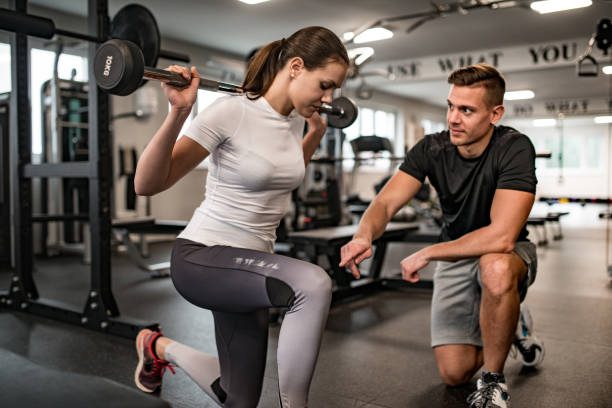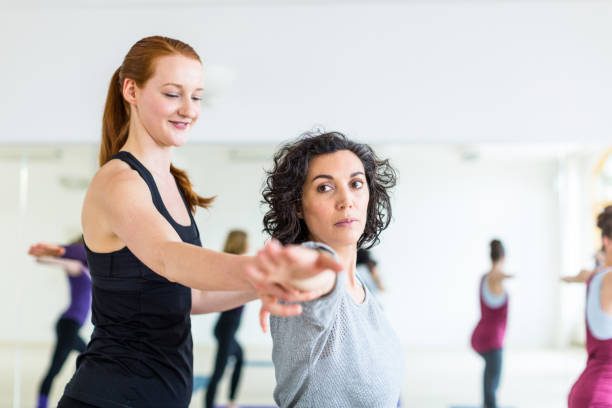
Would you like to pursue a career in the fitness industry?
You will realize that it is an excellent decision since fitness careers offer plenty of opportunities and benefits.
However, before you join a profession within the fitness industry, you will have to learn more about the different jobs it provides.
Discover why fitness careers are so attractive and why you should consider joining by reading the following sections.
1. Dietician

Why Become a Dietician?
Dieticians are experts at identifying, treating, and performing medical nutrition therapy for disease-related malnutrition.
Professionals adjust a patient’s diet by their body type, medical condition, and blood type, as well as other contributing factors.
A medical specialist diagnoses and treats a variety of medical diagnoses and dietary problems one-on-one.
One of their key objectives is to ensure that the individual they are working with consumes the proper amount and type of nutrients.
Also, those interested in animal nutrition can pursue studies as a dietician.
| Dietician Key Stats | |
|---|---|
| Education | 4+ Years |
| Outlook | 11% |
Read the full career guide: How to Become a Dietician
2. Physiologist

Why Become a Physiologist?
The role of a clinical physiologist is to diagnose, treat, and prevent various health concerns and injuries alongside doctors.
A clinical physiologist is a healthcare professional who has a deep interest in the science of the body but is not a doctor.
A physiologist usually attends a specialized degree program rather than medical school.
They typically specialize in one particular area also.
| Physiologist Key Stats | |
|---|---|
| Education | 4+ Years |
| Outlook | 8% |
Read the full career guide: How to Become a Physiologist
3. Kinesiologist

Why Become a Kinesiologist?
The primary purpose of kinesiology is to identify imbalances in the body’s structure, chemical composition, and emotional state using muscle testing.
The goal of a kinesiologist is to help their patient’s body heal itself from improving the imbalances.
A kinesiologist studies the factors that influence human movement to improve efficiency and performance.
Exercise science and physical therapy are typical career paths for kinesiologists.
They develop fitness plans to help patients overcome injury and illness.
Kinesiologists can work in various settings, including offices, recreation facilities, hospitals, and schools.
| Kinesiologist Key Stats | |
|---|---|
| Education | 4+ Years |
| Outlook | 10% |
Read the full career guide: How to Become a Kinesiologist
4. Massage Therapist

Why Become a Massage Therapist?
Massage therapists manipulate the soft tissues of the body with touch and pressure.
During sessions, they may suggest that clients practice relaxation techniques when alone.
| Massage Therapist Key Stats | |
|---|---|
| Education | 0-6 Months |
| Outlook | 22% |
Read the full career guide: How to Become a Massage Therapist
5. Orthopedic Surgeon

Why Become an Orthopedic Surgeon?
Orthopedic surgeons are experienced in diagnosing orthopedic conditions, performing or prescribing treatments, and assisting in rehabilitation.
An orthopedic doctor usually sees patients because they have pain in their joints, muscles, or bones — or any discomfort related to their movement.
| Orthopedic Surgeon Key Stats | |
|---|---|
| Education | 4+ Years |
| Outlook | 1% |
Read the full career guide: How to Become an Orthopedic Surgeon
6. Personal Trainer

Why Become a Personal Trainer?
Yes, we still include this profession as it offers many awards as a career choice.
Clients of a personal trainer may seek help for weight loss, toning, or overall health improvement goals.
A personal trainer works one-on-one or in small groups with clients to achieve their fitness goals.
| Personal Trainer Key Stats | |
|---|---|
| Education | 2-4 Years |
| Outlook | 13% |
Read the full career guide: How to Become a Personal Trainer
7. Physical Education Teacher

Why Become a Physical Education Teacher?
For individuals passionate about kids, sports, and fitness, becoming a physical education teacher is a rewarding career.
Health, nutrition, and exercise are more important than ever for our children, and physical educators are essential to their development.
As a P.E. teacher, you’ll be able to connect with students of all ages in your school.
Some P.E. teachers even instruct at more than one school, holding classes in various schools weekly.
If you want to teach at a public elementary or secondary school, you need a bachelor’s degree and a teaching certificate.
For information on your state’s teacher certification requirements, contact the Department of Education in your state.
| Physical Education Teacher Key Stats | |
|---|---|
| Education | 4+ Years |
| Outlook | 9.7% |
Read the full career guide: How to Become a Physical Education Teacher
8. Sports Medicine Technician

Why Become a Sports Medicine Technician?
They work with others, such as athletic trainers and doctors, to create and implement a game plan related to the treatment of their patients.
People interested in sports and medicine but don’t desire to complete all the requirements of a physician or therapist can pursue this career path.
| Sports Medicine Technician Key Stats | |
|---|---|
| Education | 4+ Years |
| Outlook | 22.7% |
Read the full career guide: How to Become a Sports Medicine Technician
9. Physical Therapist

Why Become a Physical Therapist?
The role of a physical therapist is to improve the quality of life for patients through exercises, care, and education.
In addition, a physical therapist will examine each individual and devise a treatment plan to improve their disability.
| Physical Therapist Key Stats | |
|---|---|
| Education | 3-4 Years |
| Outlook | 22% |
Read the full career guide: How to Become a Physical Therapist
10. Yoga Instructor

Why Become a Yoga Instructor?
In yoga, a teacher guides students in learning the correct forms for different poses.
Students can also receive further guidance from yoga instructors on yoga philosophy, nutrition, and meditation.
Yoga Alliance Standards require that you meet minimum standards in terms of training and experience to become a registered or certified yoga instructor.
You must complete either a 200-hour or 500-hour training course at a registered yoga school as part of these requirements.
You will also have to pay the appropriate fees and complete continuing education courses.
| Yoga Instructor Key Stats | |
|---|---|
| Education | 6-12 Months |
| Outlook | 13% |
Read the full career guide: How to Become a Yoga Instructor









